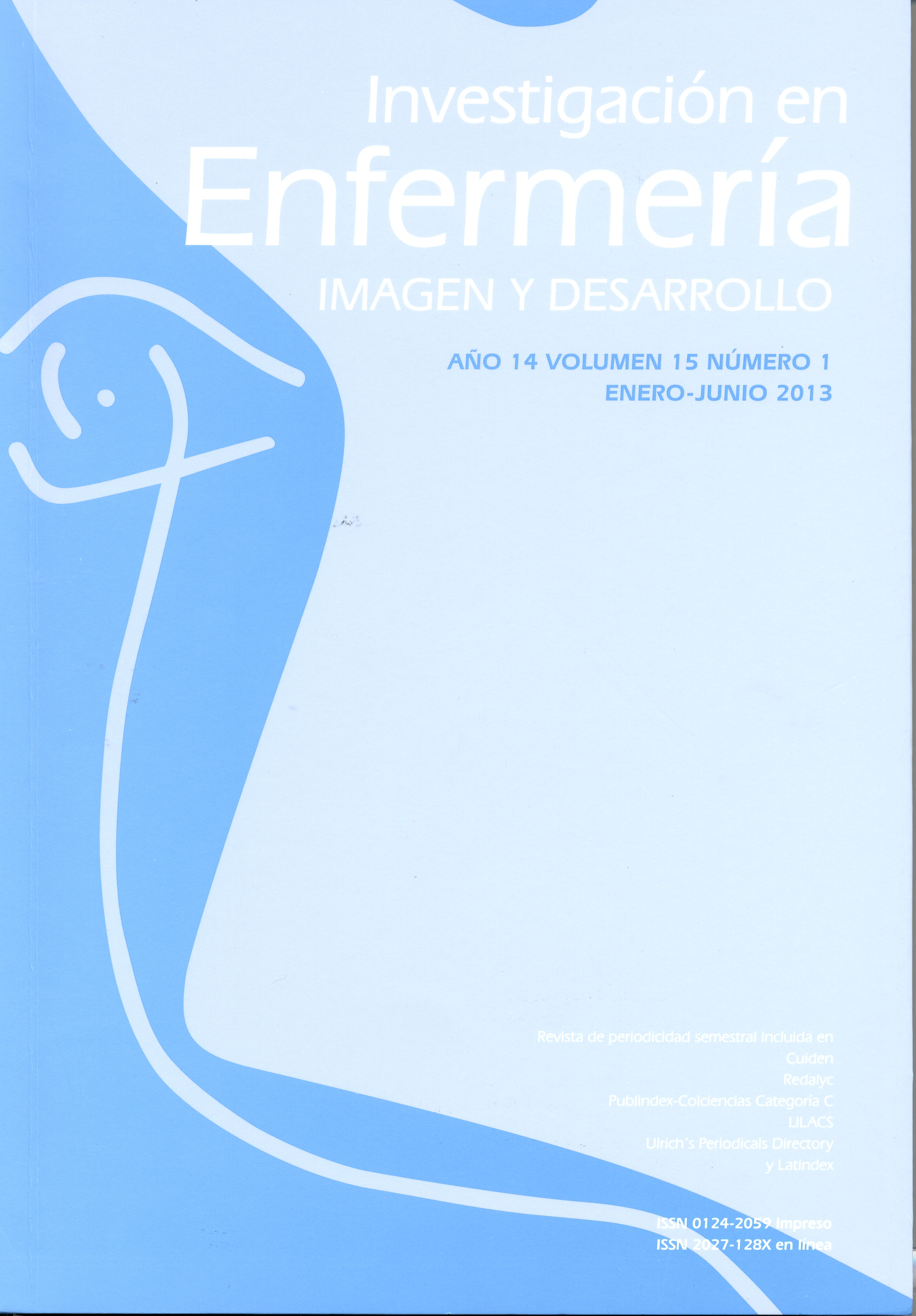Resumo
Mediante estudo quasi-experimental procurou-se determinar se a entrevista motivacional como intervenção de enfermagem é efetiva para promover o auto-cuidado em pacientes com insuficiência cardíaca de um hospital de nível quarto em Bogotá entre janeiro e maio do ano 2012. Com uma amostra de 21 pacientes a quem se realizou duas medições do auto-cuidado, uma basal e outra posterior à implementação da entrevista motivacional e o seguimento telefônico (realizado 15 dias após a primeira medição), determinou-se se existiu ou não melhoramento, utilizando como instrumento a Escada Europeia de Auto-cuidado (EEA), a qual considera três categorias: cumprimento do regime terapêutico, capacidade de adaptação à doença e procura de ajuda ante aexacerbação dos sintomas. Ao empregar a proba não paramétrica do signo que está centrada na mediana, obteve-se uma probabilidade de 0,0207 (menor que 0,05), pelo que se infere que a entrevista motivacional como intervenção de enfermagem é efetiva. De acordo com os três parâmetros da EEA, evidenciou-se um aumento global no autocuidado, de meio para alto. A entrevista motivacional conseguiu que os participantes do estudo realizassem atividades que favorecessem o autocuidado, o que permitiu que eles próprios reconhecessem o que era benéfico para a sua saúde e o que não.
A revista Investigación en Enfermería. Imagen y Desarrollo encontra-se registada sob a licencia Creative Commons Versão 4.0 Internacional. Portanto, esta obra pode se reproduzir, distribuir e comunicar publicamente em formato digital, sempre que dado o crédito apropriado para os autores e a Pontificia Universidad Javeriana. Permite-se citar, adaptar, remixar, transformar, autoarquivar, republicar e criar a partir do material, para qualquer fim, mesmo que comercial, sempre que indicado apropriadamente o nome do criador, provido um link para a obra original e indicado se mudanças foram feitas. A Pontificia Universidad Javeriana não retém os direitos sobre as obras publicadas e os conteúdos são responsabilidade exclusiva dos autores, os quais conservam seus direitos morais, intelectuais, de privacidade e publicidade.
O aval sobre a intervenção da obra (revisão, correção, edição, tradução, formatação) e a subsequente difusão disponibiliza-se através de licença de uso e não através de transmissão de direitos, o que representa que a revista e a Pontificia Universidad Javeriana são isentas de qualquer responsabilidade que puder se derivar de uma prática ética pobre por parte dos autores. Em consequência da proteção fornecida pela licença de uso, a revista não fica na obrigação de publicar retratações ou alterar informações já publicadas, a não ser que a errata seja decorrente do processo de gestão editorial. A publicação de conteúdos nesta revista não representa royalties para os contribuintes.


